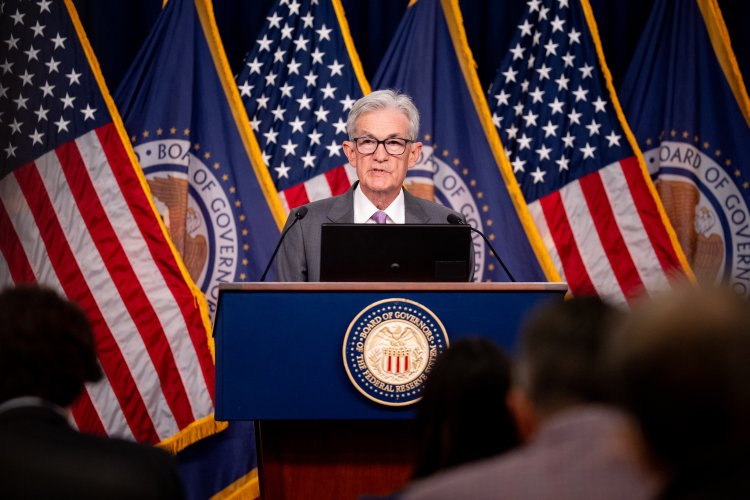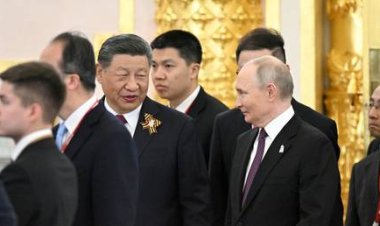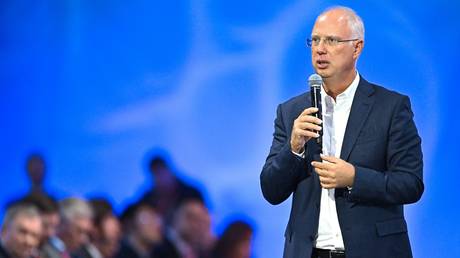Bessent Conveys Private Messages to White House Regarding Powell
Any effort to oust the Fed chair — a move that Trump contemplated during his first term, despite its legal ambiguities — would contribute to market instability, which is already shaken from the recent effects of tariffs.

Bessent’s warning aligns with President Donald Trump’s frustration, which has been mounting as Powell has not indicated that he will lower interest rates in the near future. This tension occurs amid widespread market volatility due to the administration's extensive trade war.
Trump's displeasure with Powell became publicly evident on Thursday morning when he declared in a Truth Social post that Powell’s “termination cannot come fast enough!”
Currently, however, Powell’s position seems secure.
Any attempt to remove Powell—a legally dubious notion Trump considered during his first term—could exacerbate market instability already affected by recent tariff changes. Confidence among investors that the Federal Reserve will base its decisions on economic trends instead of short-term political pressures is crucial for the United States’ global financial standing.
White House associates interpret Trump’s Thursday post not as a direct move to oust Powell but as a strategy to unsettle the Fed chair and set him up as a potential scapegoat for future economic challenges. This post appears to be an effort to pressure Powell into conceding. Nonetheless, there is always uncertainty regarding Trump's actions, as allies warn he might decide to pursue Powell’s removal more seriously at any moment.
A White House spokesperson directed inquiries back to Trump’s Truth Social post. The Treasury Department did not provide an immediate comment.
Powell has adopted a cautious approach regarding interest rates as he assesses how tariffs impact prices and employment—a stance he reiterated during a speech in Chicago on Wednesday. He cautioned that the trade war might lead to a situation in which the U.S. faces both rising inflation and slowing growth, which are challenges the Federal Reserve cannot address simultaneously.
Against the backdrop of his tariffs, Trump has been advocating for lower interest rates, causing concern among some economists who fear a potential recession. However, Powell and other Fed officials maintain elevated rates in order to keep inflation in check.
Market expectations suggest that the Fed may ultimately lower rates in response to increasing unemployment, despite inflation pressures caused by tariffs. Presently, economic indicators remain strong, and Powell has indicated that neither he nor his fellow policymakers see a need to rush to modify rates.
Trump’s grievances with Powell trace back to his first term; he appointed Powell to his position only to see the central bank raise interest rates several times in 2018. This eventually led Trump to contemplate firing Powell that December—a move that sent markets into a plunge before rebounding after Trump retreated from his threats.
Removing Powell would represent yet another significant examination of the boundaries of presidential authority. Although there has long been speculation about Trump’s intention to dismiss Powell, the Fed chair has stated that Trump lacks the power to do so.
Federal law stipulates that members of the Fed’s Board of Governors are appointed for staggered 14-year terms and can only be removed by the president “for cause,” typically understood as misconduct. This provision aims to protect the Fed from political interference. Nonetheless, the Trump administration is challenging the constitutionality of similar constraints on the president's authority over the heads of other independent agencies.
Currently, Trump is pursuing an emergency appeal before the Supreme Court, asserting that he should have unrestricted power to terminate board members of the National Labor Relations Board and the Merit Systems Protection Board.
It is uncertain whether the Supreme Court’s forthcoming ruling in that case would extend to the Federal Reserve, a matter Powell emphasized during his remarks in Chicago.
“That’s a case that people talk about a lot,” Powell noted. “I don’t think that that decision will apply to the Fed, but I don’t know. It’s a situation that we’re monitoring carefully.”
Any attempt to dismiss Powell is likely to face immediate legal challenges. Allies in the White House also point out that Powell has just a year remaining in his term, potentially making it more appealing for the president to simply wait it out.
In his Truth Social post, Trump also offered rare praise for the European Central Bank, which announced a cut in its key interest rate from 2.5 percent to 2.25 percent on Thursday.
"The ECB is expected to cut interest rates for the 7th time," Trump remarked before the decision, adding that Powell "should have lowered Interest Rates, like the ECB, long ago, but he should certainly lower them now."
Frederick R Cook for TROIB News
Find more stories on Business, Economy and Finance in TROIB business












